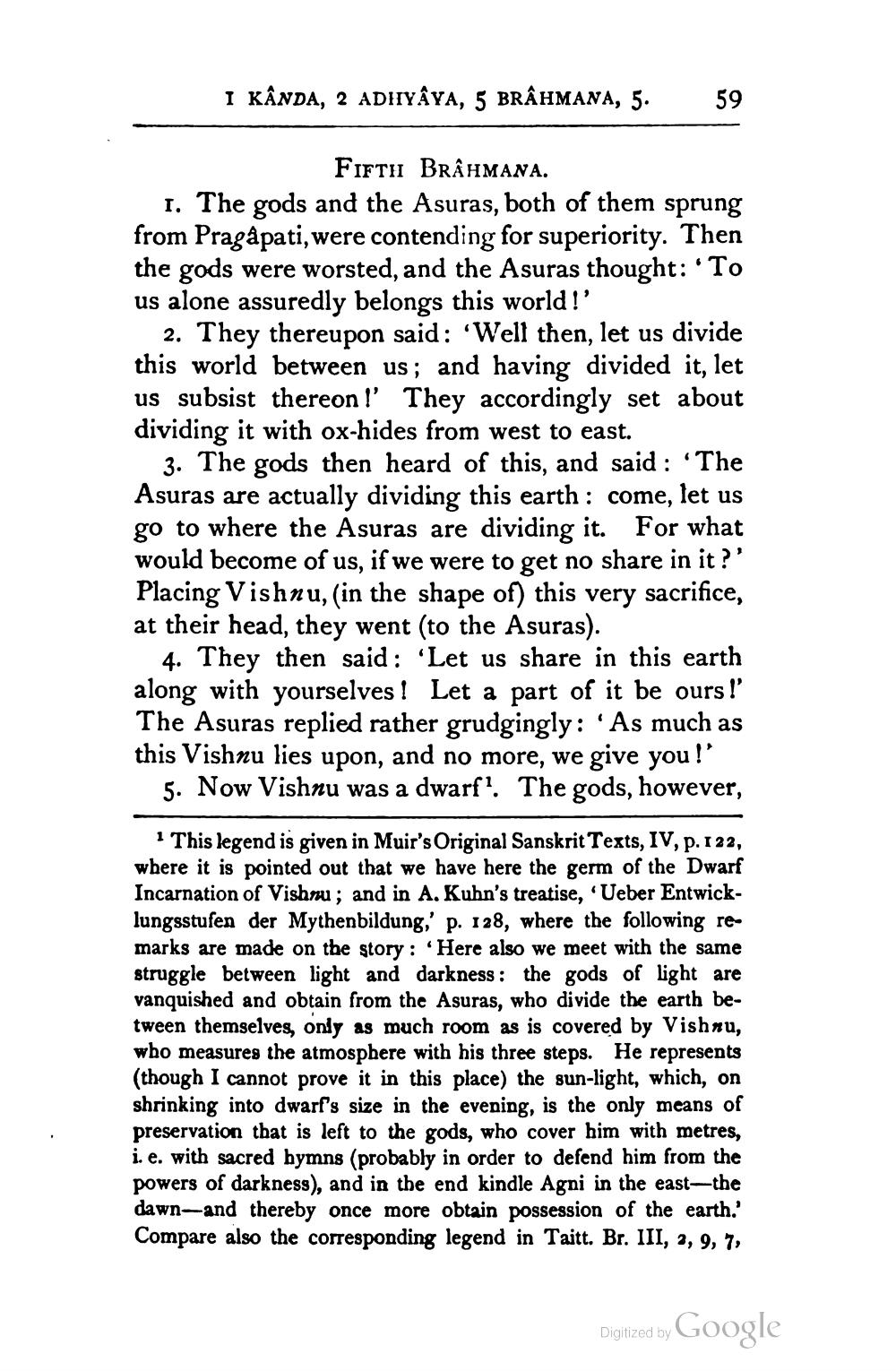________________
I KÂNDA, 2 ADIIYÂYA, 5 BRÂHMANA, 5.
59
FIFTH BRÂHMANA. 1. The gods and the Asuras, both of them sprung from Pragapati, were contending for superiority. Then the gods were worsted, and the Asuras thought: 'To us alone assuredly belongs this world!
2. They thereupon said: 'Well then, let us divide this world between us; and having divided it, let us subsist thereon!' They accordingly set about dividing it with ox-hides from west to east.
3. The gods then heard of this, and said: 'The Asuras are actually dividing this earth : come, let us go to where the Asuras are dividing it. For what would become of us, if we were to get no share in it?' Placing Vishnu, (in the shape of) this very sacrifice, at their head, they went to the Asuras).
4. They then said: 'Let us share in this earth along with yourselves ! Let a part of it be ours!' The Asuras replied rather grudgingly: 'As much as this Vishnu lies upon, and no more, we give you!'
5. Now Vishnu was a dwarf'. The gods, however,
* This legend is given in Muir's Original Sanskrit Texts, IV, p. 122, where it is pointed out that we have here the germ of the Dwarf Incarnation of Vishm; and in A. Kuhn's treatise, 'Ueber Entwicklungsstufen der Mythenbildung,' p. 128, where the following remarks are made on the story: 'Here also we meet with the same struggle between light and darkness: the gods of light are vanquished and obtain from the Asuras, who divide the earth between themselves, only as much room as is covered by Vishnu, who measures the atmosphere with his three steps. He represents (though I cannot prove it in this place) the sun-light, which, on shrinking into dwarf's size in the evening, is the only means of preservation that is left to the gods, who cover him with metres, i. e. with sacred hymns (probably in order to defend him from the powers of darkness), and in the end kindle Agni in the east-the dawn-and thereby once more obtain possession of the earth.' Compare also the corresponding legend in Taitt. Br. III, 2, 9, 7,
Digitized by Google




